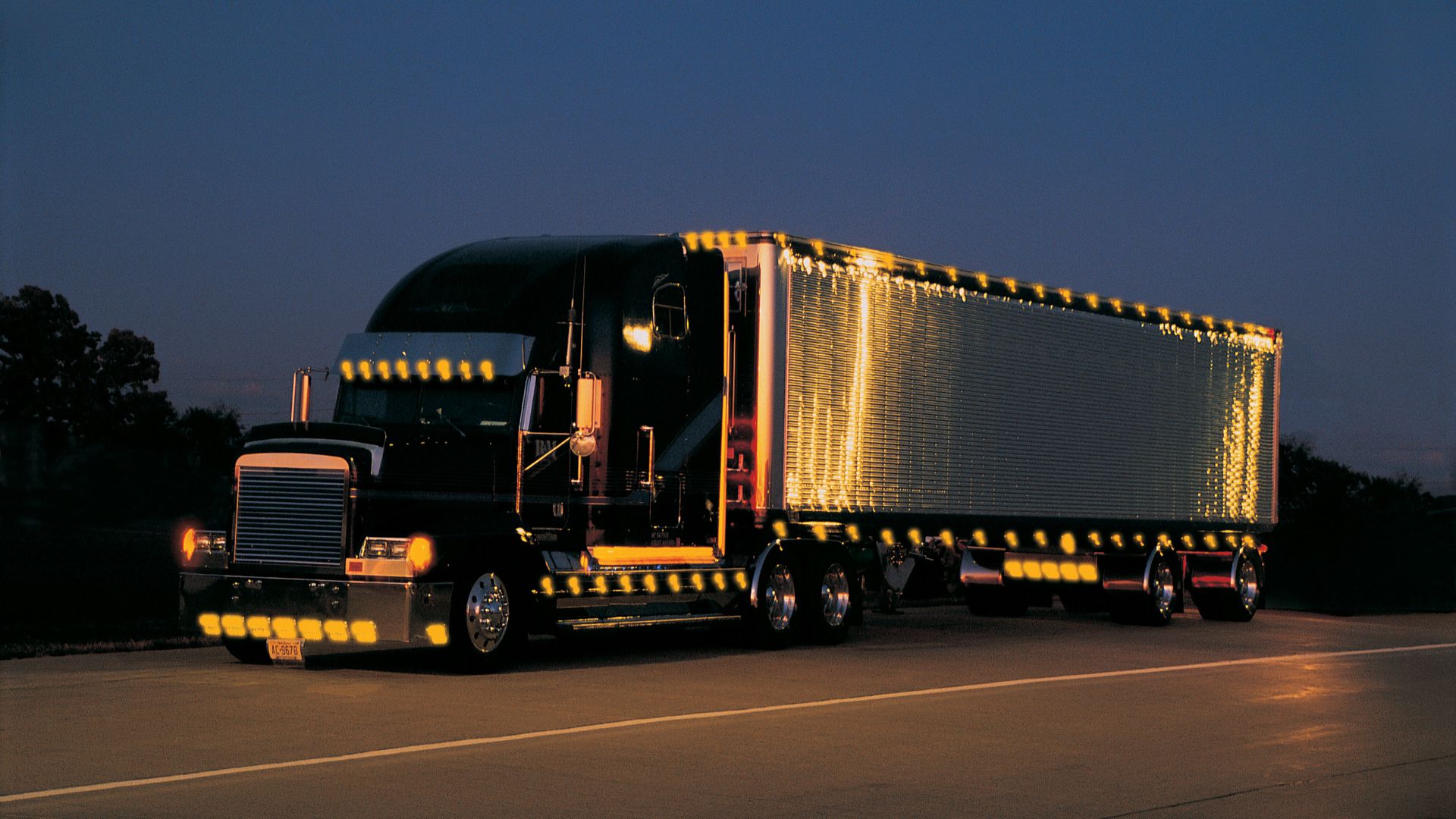Why Now Is The Right Time to Implement a TMS

Transportation management system demand continues to grow in the face of challenges, and in fact, adversity might partially explain why it's such a hot topic. Could you be missing out by not having a solution in place? Here are five factors that might explain the phenomenon and why this is the best time to implement your own TMS.
The E-Commerce Sector Is Going Gangbusters
The pandemic blew the old standards of e-commerce out of the water. Retail venue capacity restrictions, social distancing measures, and a heightened focus on personal safety combined into a kind of perfect storm, even if the humanitarian circumstances were utterly tragic. These factors pushed consumers to spend more of their money online, with many even permanently forgoing their typical shopping preferences.
So how is implementing a transportation management system the logical response to e-commerce growth? Looking more closely at the trend offers some clues. Even though the pandemic may have been the impetus for many shoppers to finally make the switch to digital commerce, they aren't all going to return to their old habits just because the end might be in sight. One FedEx assessment said that some 38 percent of buyers who relied on curbside pickup for safety reasons were likely to continue doing so because they found it convenient. Overall, 53 percent of all North American buyers planned on changing their future shopping practices due to the pandemic alone.
The same study revealed some of the problems with e-commerce, such as the difficulty of initiating returns, the hassle of inconsistent shipping options, and the expense associated with shipping items back to sellers. Another major pain point was speed. Shoppers held varying opinions on what constituted "fast" shipping based on what they were buying: Most people expect items like groceries in no more than a day, and the maximum acceptable delay for all categories of retail purchases tends to be around five days.
What's the overall takeaway? Consumers want their goods to arrive as quickly as possible, and they don't want to have to climb mountains when orders go wrong. In short, this means trucking companies need to manage their logistics appropriately to fulfill the demand – leaving items sitting in warehouses or not offering same-day shipping because you lack a complete understanding of need trends is unacceptable. TMS software makes it easier to provide end-to-end and last-mile services that actually satisfy these lofty expectations.
TMS ROI Is Strong
Freight costs have long been on the incline. While the pandemic arguably exacerbated this problem more than any other single event in recent memory, policymakers haven't necessarily made life any easier with their responses.
It remains to be seen how events like blockade-busting emergency powers invocations, surprise produce import crackdowns, or potential international sanction deterrents might impact factors like inflation and, by extension, transit costs. Still, you can almost guarantee that such volatility isn't going to decrease freight rates.
Buying a TMS might permit freight companies to defend themselves against the market swings that inevitably arise from such events. These tools make it easier to see constraints, such as fuel, maintenance, and compliance costs, evolve in real-time. From there, it's a lot simpler to highlight and eliminate waste. While it isn't always possible to directly influence ongoing market trends, investing in a TMS solution that helps your enterprise counteract them might be the next best thing.
Cloud Solutions Are Becoming More Commonplace
Increasing acceptance of remote work has been one of the most interesting pandemic-related developments. More companies from all sectors are getting used to the idea of letting employees work from home or keep flexible schedules, and in the process, the business world seems to have gotten over its shyness about distributed computing technology. Of course, cloud-based business systems had already been gaining popularity for years, but now that people have seen them in action, they appear more willing to push for adoption across the board.
You might think that the cargo industry is immune to such changes – after all, remote and distributed work are essential tools of the trade for truckers and other logistics players. As it stands, however, there's still room for improvement, particularly on the administrative side of freight operations.
TMS cloud solutions improve data accuracy, security, and access for those who work remotely, making it possible for trucking firms to distribute the load evenly. In other words, the same practices you've already grown accustomed to while managing teams separated by vast distances are growing increasingly efficient. You can delegate tasks more effectively using centralized systems that ensure a higher signal-to-noise ratio and reduce the likelihood of misunderstandings and errors. When it's time to rethink your strategy or shift gears, you can keep all of your employees in the loop without time-consuming upgrades. If you're not already on board with remote work, the ability to transition rapidly without going through a configuration nightmare is also a giant plus.
Get a TransPlus Demo
If you're looking for a powerful TMS to streamline your operations, reduce costs, and improve customer service, we've got you covered.
Sustainability Initiatives Are Expanding
More national and local governments are working to clean up their carbon footprints, reduce pollution, and generally treat the environment better. The burdens of stewardship, however, often fall squarely on the business sector: Regulators commonly task companies with implementing new practices that adhere to evolving rules.
Fortunately, owners and operators might get a break for once. Organizations like the US National Renewable Energy Laboratory are focusing on industry suppliers, such as truck manufacturers, by promoting features like aerodynamic truck designs, alternative fuels, and engine technology upgrades designed to cut down on waste and emissions alike. Even at the state and municipal levels, authorities seem to think it'll be easier to push the industry in the right direction with soft diplomacy.
This doesn't mean that you're completely in the clear, however. It's highly likely that regulators will eventually replace the carrot with the stick, cracking down on freight companies that continue to do things the old, inefficient way – particularly when their peers have already cleaned up their acts.
Transportation management systems offer solid answers because they provide access to more data, and being better informed serves multiple purposes:
- Companies using TMS software gain an enhanced understanding of where waste arises, making it simpler to target inefficiencies that might hamper their sustainability efforts.
- Route feedback data could make it easier to prove you comply with the new rules that will inevitably pop up down the line.
- Predictive maintenance systems might help you avoid major problems by catching vehicle problems before they result in heavy emissions.
- Building a healthier pool of performance data might improve your odds of staying competitive in the face of more onerous regulations.
- Routing, weather patterns, driver habits, vehicle maintenance trends, and other data categories are often hard to notice unless you have data systems that can bring the big picture to light without hindering your ability to zoom in on the particulars.
It's also worth noting that the benefits don't just apply to your company directly. Choosing partners that use TMS software might make it easier to position yourself as a greener company overall, which could make your services more appealing to eco-conscious consumers. As more retail, freight, and other companies emphasize governance and environmental stewardship, not having a TMS already in place – along with the track record to prove your bona fides – might even limit your prospects.
TMS Technology Is Better Than It's Ever Been
TMS solutions are nothing new, but they're improving by massive leaps. As the underlying technologies advance, truckers gain access to unparalleled amounts of feedback data points that empower them to make smarter decisions under significant pressure. In some cases, TMS tools can even help firms discover new business opportunities by drawing conclusions and making connections they wouldn't have otherwise.
A good transportation management system also takes a lot of the work out of common tasks. For instance, if you want to disseminate information to all of your operators in response to a new regulation, you can push the changes out once without having to go through an inefficient bureaucracy or chain of command – no more playing the telephone game and hoping for the best. This also applies to things like maintaining situational awareness, with intelligent software able to flag and share road conditions, safety issues, and other hazards based on feedback from connected driver systems.
Every freight company has some special sauce that makes it unique. Fortunately, TMS tools are highly customizable and adaptive: They can learn from your preferred workflows to lighten the load without forcing you to overhaul your practices. It's vital is to stay agile in the face of changing market conditions. Investing in a system that helps you adjust on the fly is a wise choice, particularly if you're interested in surviving the next pandemic, embargo, or other ground-shaking freight industry challenge.
Read our TMS Buyer's Guide
Navigate the TMS software landscape with our comprehensive buyer's guide - find the perfect platform for your trucking business today.

Latest From the Blog
Our Insights on Tech, Industry Trends, and News.

How Does Logistics Management Software Improve the Supply Chain?

Benefits of Integrating Enterprise Resource Planning (ERP) and Transportation Management Software (TMS)

